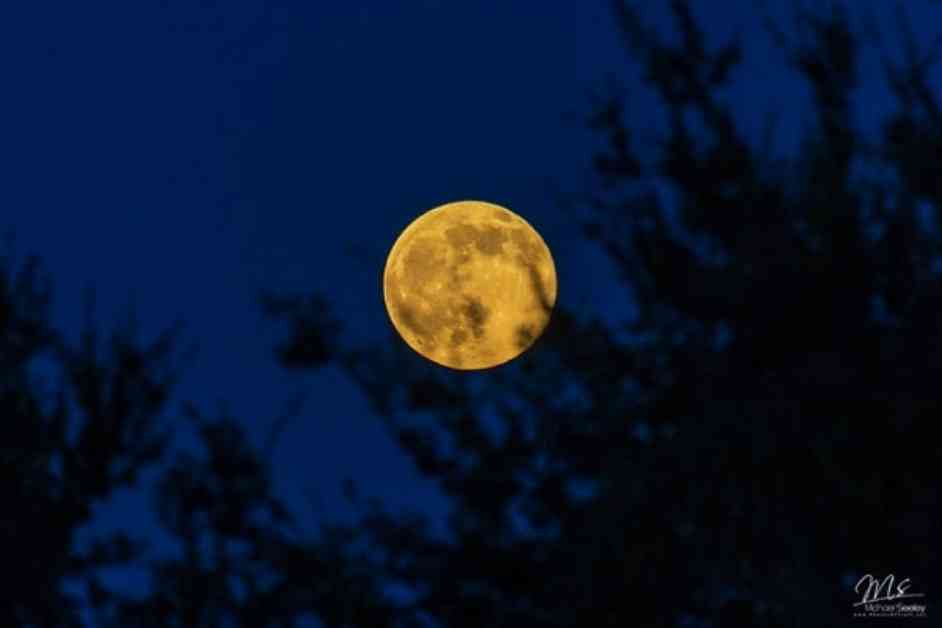The Full Moon is a beautiful phenomenon that occurs when the Earth is between the Sun and the Moon, causing the Moon to be fully illuminated. This alignment creates different lunar phases as the Moon orbits around the Earth.
In 2024, the Full Moon schedule is as follows:
– Jan. 25, 12:54 p.m. — Wolf Moon
– Feb. 24, 7:30 a.m. — Snow Moon
– March 25, 3 a.m. — Worm Moon
– April 23, 7:49 p.m. — Pink Moon
– May 23, 9:53 a.m. — Flower Moon
– June 21, 9:08 p.m. — Strawberry Moon
– July 21, 6:17 a.m. — Buck Moon
– Aug. 19, 2:26 p.m. — Sturgeon Moon
– Sept. 17, 10:34 p.m. — Corn Moon
– Oct. 17, 7:26 a.m. — Hunter’s Moon
– Nov. 15, 4:28 p.m. — Beaver Moon
– Dec. 15, 4:02 a.m. — Cold Moon
The Full Moon for July 2024 occurred on Sunday, July 21. The Moonrise and moonset schedule for the week of July 26 to August 2 is detailed below, providing insights into the lunar phases and celestial events during this period.
On Monday, July 29, the Moon passes near Uranus and the Pleiades star cluster, offering a unique celestial sight for early morning observers. This alignment allows for easy identification of the ice giant planet and its surrounding stars.
As the Moon continues its journey through Taurus, it passes Mars on Tuesday, July 30, and Jupiter on Tuesday, July 31. These close encounters with the planets provide astronomy enthusiasts with opportunities to observe these celestial bodies in the night sky.
The Southern Delta Aquariids meteor shower peaks on Wednesday, July 31, offering a chance to witness up to 25 meteors per hour. This meteor shower is generated by debris from Comet 96P/Machholz and Comet 169P/NEAT, providing a celestial spectacle for sky watchers.
The Full Moon and its various phases have captivated humanity for centuries, inspiring cultural, agricultural, and natural observations. The different names for Full Moons, such as the Wolf Moon, Snow Moon, and Harvest Moon, reflect the diverse traditions and beliefs associated with lunar events.
In conclusion, the Full Moon calendar for 2024 offers a wealth of opportunities for stargazers and astronomy enthusiasts to observe the beauty and wonder of the night sky. Whether tracking lunar phases, meteor showers, or planetary alignments, the celestial events of 2024 promise to delight and inspire all who gaze upwards.












